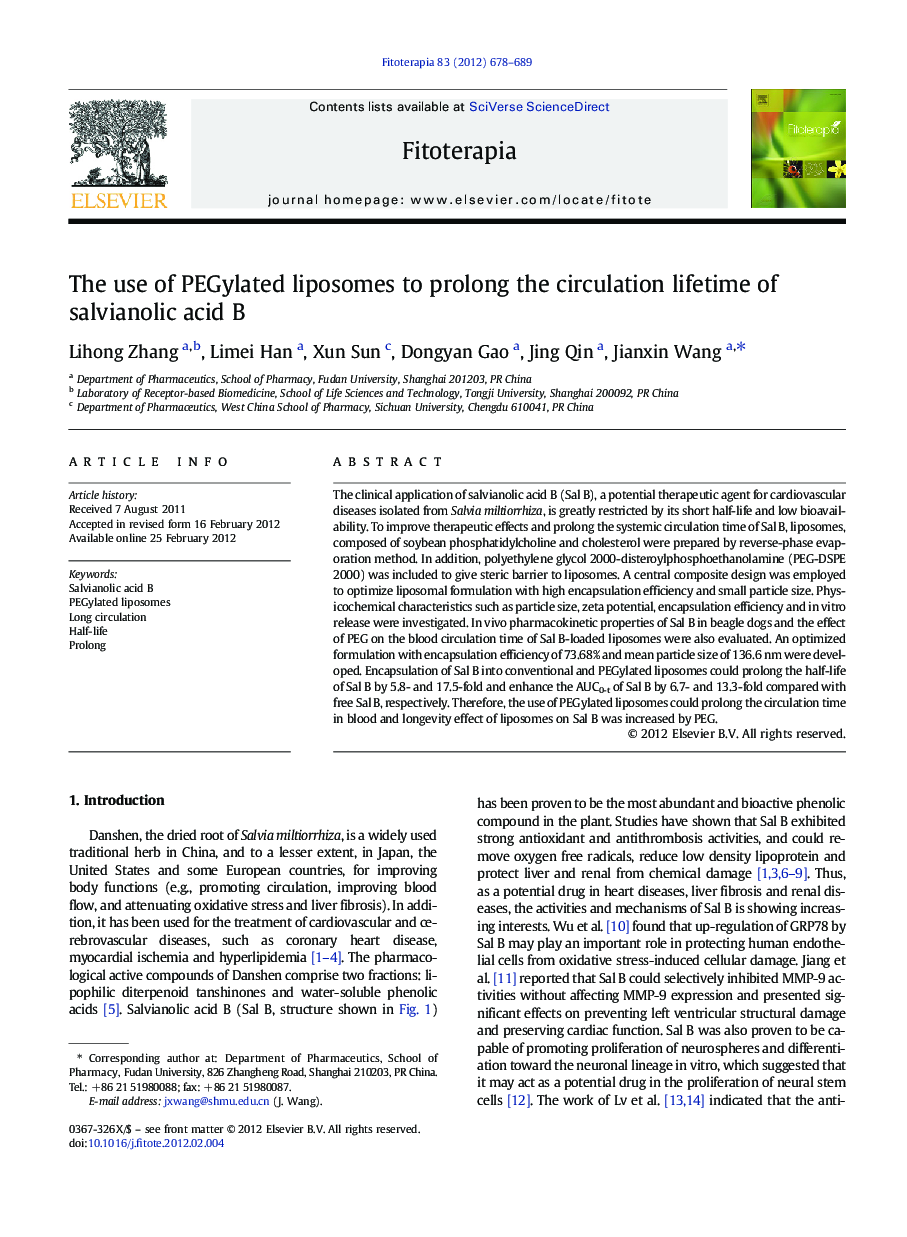| Article ID | Journal | Published Year | Pages | File Type |
|---|---|---|---|---|
| 2538779 | Fitoterapia | 2012 | 12 Pages |
The clinical application of salvianolic acid B (Sal B), a potential therapeutic agent for cardiovascular diseases isolated from Salvia miltiorrhiza, is greatly restricted by its short half-life and low bioavailability. To improve therapeutic effects and prolong the systemic circulation time of Sal B, liposomes, composed of soybean phosphatidylcholine and cholesterol were prepared by reverse-phase evaporation method. In addition, polyethylene glycol 2000-disteroylphosphoethanolamine (PEG-DSPE 2000) was included to give steric barrier to liposomes. A central composite design was employed to optimize liposomal formulation with high encapsulation efficiency and small particle size. Physicochemical characteristics such as particle size, zeta potential, encapsulation efficiency and in vitro release were investigated. In vivo pharmacokinetic properties of Sal B in beagle dogs and the effect of PEG on the blood circulation time of Sal B-loaded liposomes were also evaluated. An optimized formulation with encapsulation efficiency of 73.68% and mean particle size of 136.6 nm were developed. Encapsulation of Sal B into conventional and PEGylated liposomes could prolong the half-life of Sal B by 5.8- and 17.5-fold and enhance the AUC0-t of Sal B by 6.7- and 13.3-fold compared with free Sal B, respectively. Therefore, the use of PEGylated liposomes could prolong the circulation time in blood and longevity effect of liposomes on Sal B was increased by PEG.
Graphical abstractFigure optionsDownload full-size imageDownload high-quality image (127 K)Download as PowerPoint slide
